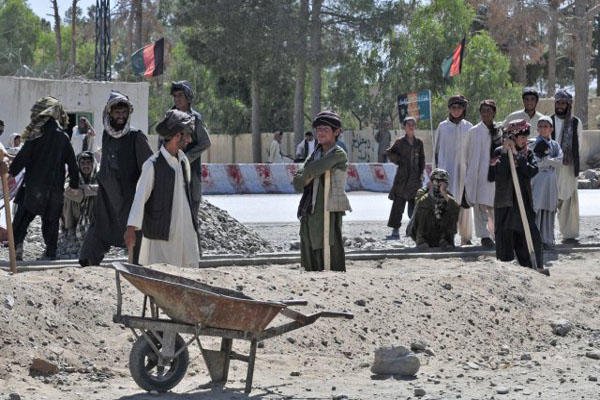The failure of U.S. firms in Afghanistan to pay local subcontractors on time has resulted in a backlog of at least $62 million owed to Afghan workers, a government watchdog agency said Thursday.
The non-payments have reached the point where one “sub-contractor threatened to set himself on fire in front of the U.S. embassy [in Kabul] in protest,” according to the office of the Special Inspector General for Afghan Reconstruction.
In a letter to Defense Secretary Chuck Hagel, Secretary of State John Kerry and others, John Sopko, head of the SIGAR office, warned of “serious problems involving failure of prime contractors to pay subcontractors in Afghanistan.”
Sopko said his office currently has 52 investigations underway involving a total of $62 million in claims from Afghans for back payment.
“While a subcontractor may always face the risk of nonpayment by its prime contractor, Afghan subcontractors may be particularly at risk due to a lack of adequate legal protections and limitations placed on the U.S. government’s ability to intervene on their behalf,” Sopko wrote.
The mailing list for the letter included Marine Gen. Joseph Dunford, commander of U.S. and allied forces in Afghanistan, Army Gen. Lloyd J. Austin III, head of the Central Command, Rajiv Shah, administrator for U.S. Agency for International Development, U.S. Ambassador James Cunningham and Maj. Gen. Camille Nichols, head of the Army Contracting Command.
Only last month SIGAR was defending U.S. contractors against attempts by the Afghan Ministry of Finance to tax the firms in violation of non-taxation agreements. SIGAR reported then that the failure of the U.S. “to enforce non-taxation agreements has allowed Afghanistan to collect more than $920 million in taxes from 43 contractors supporting U.S. rebuilding efforts in Afghanistan.”
SIGAR is not naming the U.S. companies or individuals who it claims are stiffing Afghan subcontractor, but did reference in its letter media reports on Tamerlane Global Services Inc., and DynCorp International LLC.
In April, Tamerlane employee David Gordon was arrested and allegedly beaten by Afghan authorities before being released after a dispute between the Afghans and Tamerlane over a contract, U.S. officials said.
Subcontracting and direct aid from the U.S. and other governments have been the main engines of Afghanistan’s economy since U.S. invaded the country following the Sept. 11, 2001, attacks on the Pentagon and World Trade Center.
In a 2011 report, the Senate Foreign Relations Committee estimated that 97 percent of Afghanistan’s economy was dependent on foreign aid. That dependence has been a main issue in the stalled negotiations between the U.S. and the Afghan government on the size and nature of the continued U.S. and allied presence in Afghanistan after 2014.






























